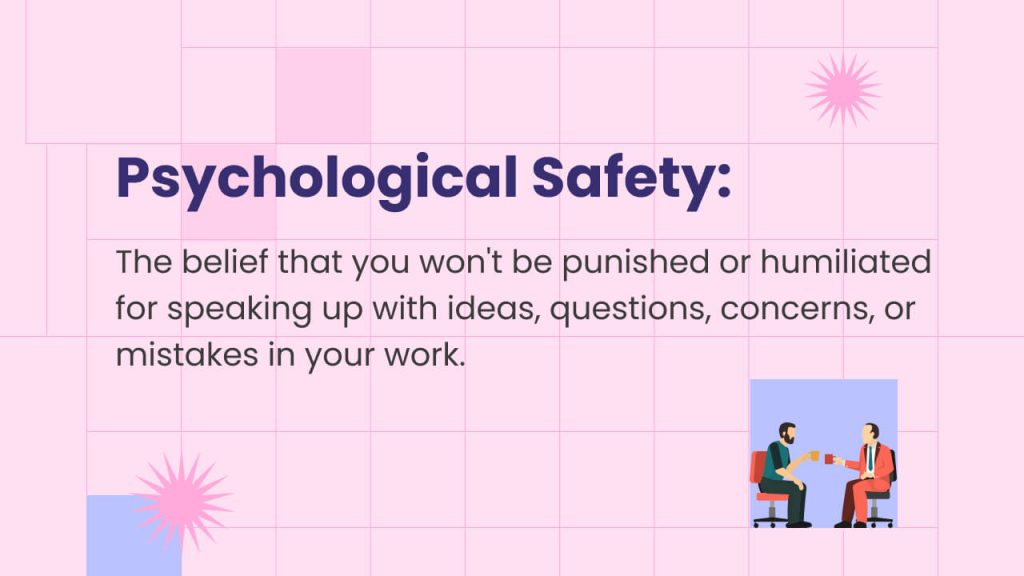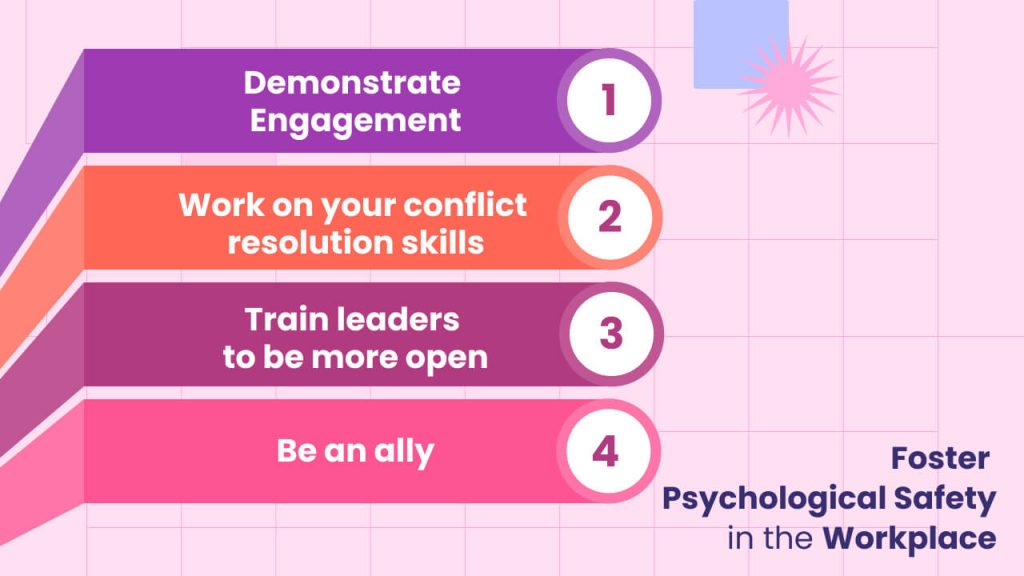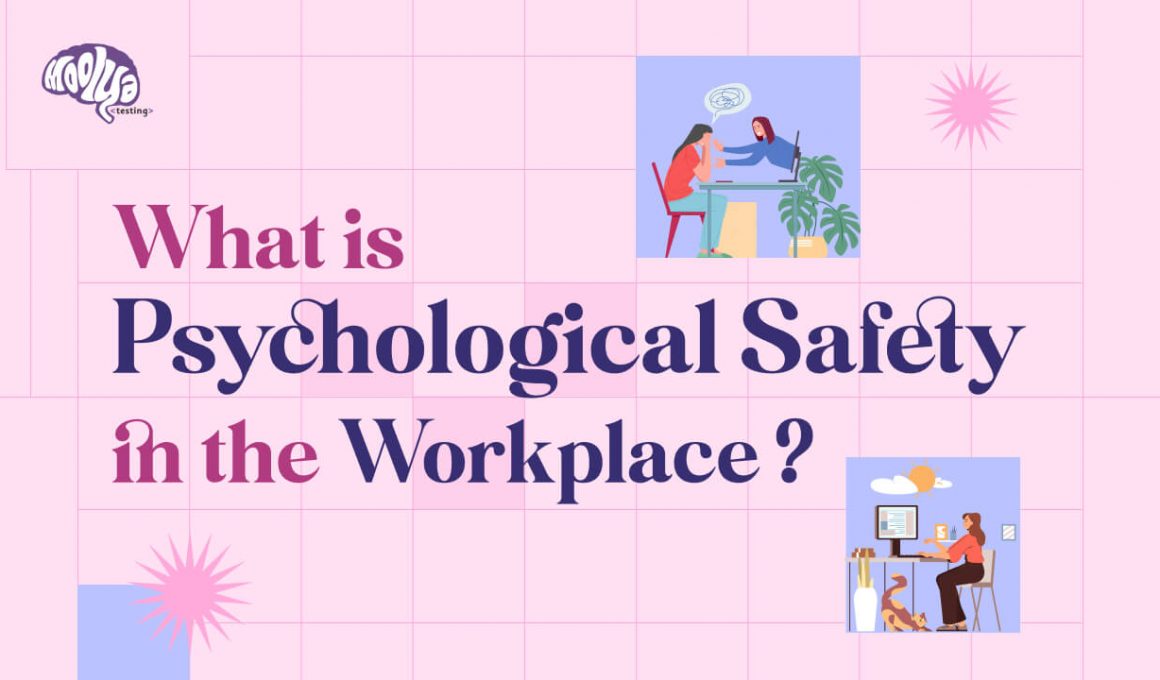What is the primary factor driving the success of high-performing teams? A Google study reveals that it is psychological safety. Multiple studies show that organizations flourish when they value collaboration and cultivate a sense of community. Nevertheless, the psychological stability required in the workplace to foster this form of cooperation and teamwork is frequently misconstrued. Let us explore this term in further detail.
Defining Psychological Safety
Psychological safety is the universally shared belief among team members that it is acceptable to take risks, express their ideas and concerns, ask any questions, and confess failures without dreading the repercussions.
Harvard organizational behavior expert Amy Edmondson introduced the concept of “team psychological safety” She intended to investigate the relationship between errors and collaboration in healthcare. However, she discovered that the teams who cited greater collaboration seemed to be making more mistakes! As she delved into the data more deeply, it became apparent that stronger teams are more likely to report their errors because they feel secure doing so.
Psychological safety in the workplace does not imply that everyone is always nice to one another. It implies that people feel free to “brainstorm out loud,” openly challenge the status quo, offer additional feedback, or work through disputes together — knowing that top management values truth-telling and team members will have each other’s backs.

Importance of Psychological Safety in the Workplace
Psychological safety is not an indulgence, but a necessity for an organization to function effectively and efficiently. Without it, employees will lack confidence in their employer, and indeed the business as a whole will struggle. It is an extremely important part of team dynamics and organizational culture because it:
1. Drives engagement
Psychological safety increases team members’ engagement and motivation because they believe their contributions are valued and they can speak openly without the anxieties associated with retribution.
2. Leads to better decisions
Individuals are more at ease expressing their thoughts and concerns, which often results in a broader spectrum of perspectives being acknowledged and evaluated.
3. Encourages a culture of learning
Thirdly, it can nurture an environment that encourages continuous learning and improvement by urging team members to share and learn from their mistakes.
4. Supports diversity, equity, and inclusion (DEI)
Employees who believe they can be their entire and complete selves at work can freely express their ethnicity, race, orientation, gender identity, heritage, and family situation without fear of judgment.
Is Your Workplace Psychologically Safe?
This is undoubtedly the concern on the minds of several leaders. Edmondson has created a straightforward 7-point questionnaire to evaluate the notion of psychological safety. How team members respond to these queries will indicate the extent to which they are psychologically secure.
- On this team, your error will not be held against you.
- This team is capable of raising tough problems and issues.
- Persons on this team occasionally appreciate others despite their differences.
- It is acceptable to take risks with this team.
- It is not difficult to request assistance from other team members.
- Nobody on this team will intentionally try to undermine my efforts.
- My unique abilities and expertise are valued and utilized while working with team members.
How to Foster Psychological Safety in the Workplace?
Since the pandemic, the rise of hybrid workplaces and virtual work schedules has rendered psychological safety at work more difficult and problematic for leadership. It can be more difficult to create a psychologically secure “workplace” when so many employees are working remotely. In this context, organizations need to double down on psychological safety as a central element in their company culture, more than ever before.

1. Demonstrate engagement
If employees believe that administrators are not listening to them, they will slow down. You can “demonstrate” engagement by showing up to meetings. This includes establishing eye contact and turning off all other electronic devices.
2. Work on your conflict resolution skills
Do not condone any team member conduct that inhibits others from speaking up. Intervene and discuss how such comments can stifle innovation and creativity, including the expression of worries, ideas, and inquiries.
3. Train leaders to be more open
True fortitude is exemplified when leaders acknowledge their frailty and fallibility. It demonstrates a passion for institutional and self-growth. When leaders recognize their own fallibility, the team and the organization are able to thrive and improve.
4. Be an ally
If you do not belong to a marginalized community, make an effort to empower underrepresented coworkers by leveraging your privileges. Examples include emphasizing the accomplishments of team members, among others.
Conclusion
Psychological safety in the workplace is frequently misconstrued and undervalued. When leaders promote a psychologically secure workplace, employees are significantly more likely to propose game-changing ideas and are significantly more engaged. Look for the four stages of feeling psychologically safe – being included, feeling safe enough to learn, having the confidence to contribute, and eventually, being bold enough to argue – when promoting a culture of psychological safety in the workplace.
2